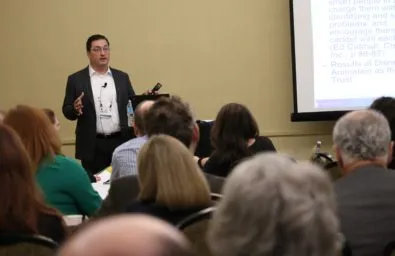This post continues our Lessons from Business Reality TV series. Click here for the entire series.
Know Your Market: Three Free Ways to Gain Market Insights for Proposal Professionals

Experienced, multi-functional proposal managers
Construct winning narrative
Make your bid look its best
Leverage our expertise to make your proposals stronge
Let BZ be your go-to proposal resource
Win a seat on critical contracts
Hight quality, rapid response assistance

This post continues our Lessons from Business Reality TV series. Click here for the entire series.

Like all reality television, business reality shows are built on drama. Many of these programs focus on helping failing and struggling business turn their operations around, usually with a heavy dose of “tough love.” For example:

It’s always the most dramatic moment in a pitch on Shark Tank. The entrepreneur has done a great job talking about his revolutionary new product and how it will take the world by storm. Then one of the business heavyweights asks the critical question: “What are your numbers?” <Crickets.>
Continue reading “Know your Numbers! Three Key Steps to Having the Information You Need”

I have a problem. I am addicted to business reality television. You can keep the Bachelor and The Voice. Instead, I am drawn to the real-life struggles and lessons from shows like Shark Tank, The Profit, Undercover Boss, Bar Rescue, and more.
Continue reading “Seven Lessons to Learn from Business Reality Television”

In our Better Proposal Writing series, we have covered Proposal section introductions, approach narratives, substantiation, and benefit statements. As we conclude our series we answer the age-old question: what do I do if my team just cannot write?
Continue reading “Doing It Yourself: Three Tips to Leverage Your Experts”

So far in our “Better Proposal Writing” series, I have articulated the need for a strong, client-focused introduction; a well-constructed approach section; and hard-hitting substantiation. However, the one thing I have not discussed is how to gain the “bonus points” from an evaluator to get your proposal from Good to Outstanding.
Continue reading “Give Them a Reason To Care: Three Tips to Better Benefit Statements”

 Kevin Switaj, President and CEO of BZ Opportunity Management, has been selected to present at the 21st annual Southern Proposal Accents Conference (SPAC). Hosted by the Georgia, Carolinas, and Florida APMP chapters, the conference focuses on APMP professionals across the Southeast region and beyond. This year’s conference theme is “The World of Proposals — From Start to Finish” and is scheduled for Thursday, March 22, 2018 at the Cobb Energy Performing Arts Center in northwest Atlanta.
Kevin Switaj, President and CEO of BZ Opportunity Management, has been selected to present at the 21st annual Southern Proposal Accents Conference (SPAC). Hosted by the Georgia, Carolinas, and Florida APMP chapters, the conference focuses on APMP professionals across the Southeast region and beyond. This year’s conference theme is “The World of Proposals — From Start to Finish” and is scheduled for Thursday, March 22, 2018 at the Cobb Energy Performing Arts Center in northwest Atlanta.
Continue reading “Kevin Switaj Selected to Present at SPAC 2018!”


The company has been targeting an opportunity for a year. It has gone through all the necessary step reviews, has had dedicated capture resources, several client meetings, and the team has even developed win themes and solutions. The solicitation drops. The capture lead then poses the question: ‘who is our proposal manager?’

In our “Better Proposal Writing” series, we have covered how to create a strong section introduction and how to craft compelling content to articulate an approach. Good proposals do not just state the work a company will perform. It also backs up the approach with proof statements explaining why it is the best option for the client. This blog post provides clear, actionable tips to crafting strong substantiation in your proposal.
Continue reading “Prove It! Three Tips to Creating Strong Substantiation Statements”


Upon receiving the solicitation, the proposal manager develops an outline based on the requirements. After circulating it to the bid team, the capture lead sends a reply. He writes the structure “doesn’t flow” and demands changes because the outline does not allow him to tell the story he wants.
Continue reading “Shattering Proposal Myths: Myth 6 – We Need to Tell a Story”